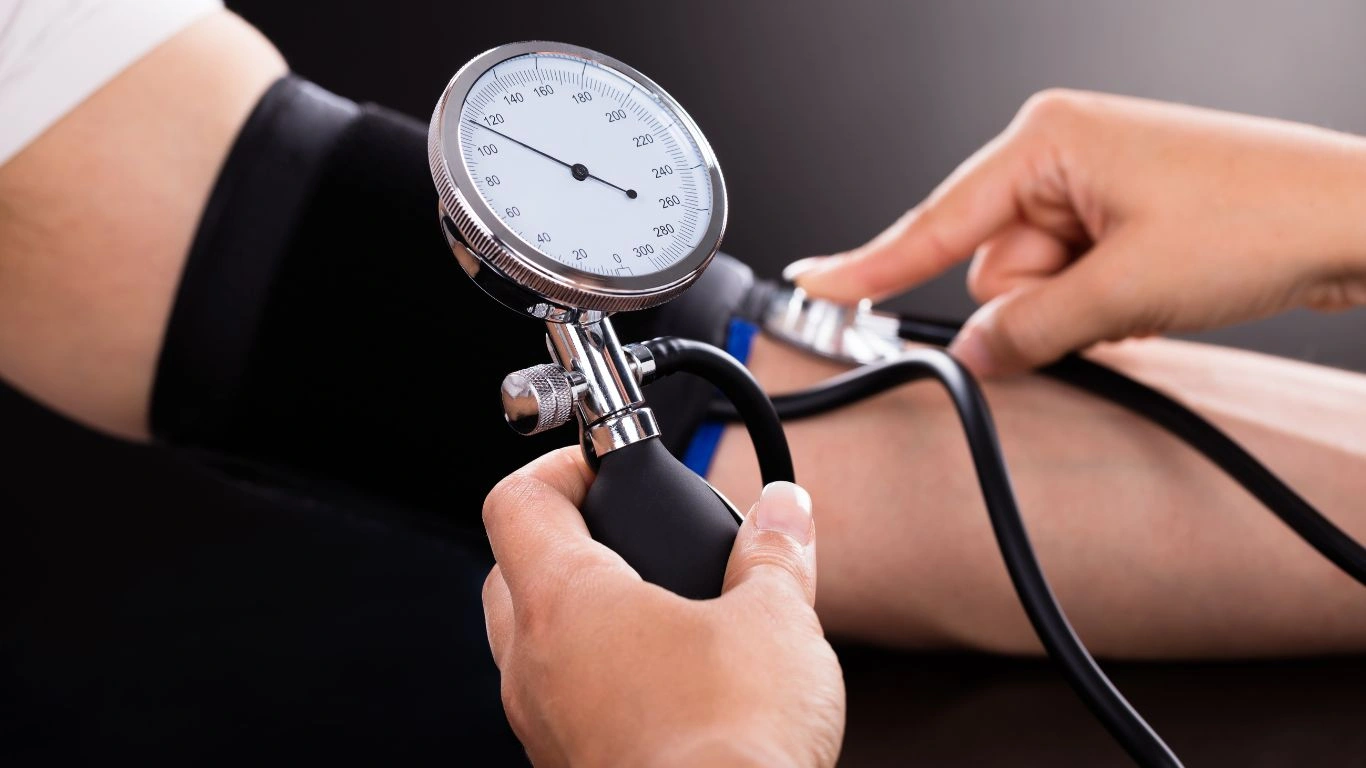How to Improve Blood Pressure with Better Sleep: Key Tips for Heart Health
Hi there, I’m Gwenna, and if you’re here reading this, you’re probably wondering how to improve blood pressure with better sleep. As a hypertension expert, I’ve spent years diving deep into the ways our daily habits—especially sleep—affect our heart health. Sleep plays a huge role in managing blood pressure, and in this post, I’m going to walk you through how to harness the power of good sleep to help lower your numbers. I know firsthand how a lack of quality sleep can wreak havoc on your blood pressure, and it’s not just about quantity, but quality too. Let’s dive into how sleep is truly connected to better blood pressure management!
Why Sleep and Blood Pressure Are So Interconnected

When you think about managing hypertension, the first thing that might come to mind is probably things like exercise, medication, and diet. And while those are all important, there’s another key factor that many people overlook: sleep. Sleep doesn’t just help us recharge our batteries; it’s an essential process that impacts nearly every system in our body, including our cardiovascular system.
Throughout my years working with hypertension patients, one thing became very clear: poor sleep is directly linked to higher blood pressure. In fact, studies have shown that people who don’t get enough quality sleep are at a significantly higher risk of developing hypertension. But how exactly does sleep affect our blood pressure?
Well, think of it like this—during deep sleep, your body enters a state of repair and restoration. Your heart rate slows down, and your blood vessels relax, allowing your blood pressure to drop. This is your body’s natural way of resetting. Without enough sleep or the right type of sleep, your blood pressure doesn’t get the break it needs, and that constant strain can add up over time.
Sleep Quality vs. Sleep Quantity
When it comes to improving blood pressure, it’s not just about how many hours of sleep you get—it’s also about the quality of that sleep. Many people assume that just getting 8 hours is enough, but if you’re tossing and turning the whole time, you might not be getting the deep restorative sleep that benefits your heart. Here are a few things I’ve learned over the years that can make a big difference:
- Sleep Cycle Matters: The deeper stages of sleep, such as deep sleep and REM sleep, are where your body really benefits. These are the stages where your blood pressure naturally drops.
- Sleep Interruptions: Frequent wake-ups during the night can lead to a higher average blood pressure the next day. This is especially true for those with sleep disorders like sleep apnea.
- Consistency Is Key: Going to bed and waking up at the same time each day can help train your body to maintain a healthy sleep cycle, which supports healthy blood pressure.
How Sleep Helps Lower Blood Pressure

It may sound like a simple concept, but the truth is, sleep has a profound impact on regulating blood pressure. Let’s break it down a bit.
First, during sleep, your heart rate decreases, and your blood vessels dilate, which leads to a drop in blood pressure. This is especially important for people who are struggling with high blood pressure, as it gives your heart a much-needed break. Imagine running a marathon without any rest—it would wear you down, right? Well, your heart works similarly. Sleep acts as a vital rest period for your cardiovascular system.
But there’s more! Studies have shown that a lack of sleep can trigger stress responses in the body, leading to the release of stress hormones like cortisol. These hormones can cause your blood vessels to constrict, raising your blood pressure. The cycle becomes vicious—less sleep leads to higher blood pressure, which then makes it harder to sleep well. It’s a pattern I’ve seen in many of my patients, and it’s something that needs to be broken for better heart health.
Sleep Apnea: A Silent Culprit
One of the most common sleep disorders linked to high blood pressure is sleep apnea. Sleep apnea occurs when your airway becomes blocked during sleep, causing you to stop breathing temporarily. These interruptions can be very brief, but they’re enough to disturb your sleep cycles and increase your risk of developing hypertension.
If you or someone you know has been diagnosed with sleep apnea, you know how disruptive it can be. The condition can lead to poor-quality sleep, which then leads to higher blood pressure. If left untreated, sleep apnea can increase your blood pressure over time, making it more difficult to manage hypertension. That’s why it’s important to address sleep apnea early on—whether it’s through lifestyle changes, CPAP therapy, or other treatments.
How to Improve Your Sleep for Better Blood Pressure

Now that we know how important sleep is for blood pressure, let’s talk about some practical tips to help you improve your sleep quality and, in turn, support your heart health. These are strategies I often recommend to my patients:
- Establish a Consistent Sleep Schedule: Going to bed and waking up at the same time every day helps regulate your body’s internal clock. This can improve your sleep quality and help your body get the deep, restorative rest it needs.
- Create a Relaxing Bedtime Routine: Wind down at least 30 minutes before bed by avoiding screens, turning off bright lights, and doing something calming, like reading or practicing deep breathing.
- Limit Stimulants: Avoid caffeine, alcohol, and heavy meals close to bedtime. These can disrupt your sleep and cause your blood pressure to rise.
- Make Your Sleep Environment Comfortable: Keep your bedroom cool, dark, and quiet. Consider using blackout curtains and white noise machines to create the perfect sleep environment.
- Consider a Sleep Study: If you suspect you have sleep apnea or another sleep disorder, it’s worth having a sleep study done. Addressing the issue can dramatically improve both your sleep and your blood pressure.
How Lack of Sleep Contributes to High Blood Pressure

If you’ve been following along, you already know how sleep is so important in managing blood pressure. But what happens when we don’t get enough sleep? Let’s take a deeper look into how poor sleep habits can contribute to high blood pressure.
Many people think that staying up late once in a while won’t have a major effect on their health. But in reality, a lack of sleep, especially when it becomes chronic, can do some serious damage to your blood pressure. I’ve seen it time and again with patients: they come in for their routine check-ups, and their blood pressure is higher than it should be. When I dig into their sleep habits, it becomes clear—poor sleep is one of the main culprits.
When you’re sleep-deprived, your body’s natural balance gets disrupted. Your sympathetic nervous system—the part of the nervous system responsible for your “fight or flight” response—becomes overactive, releasing stress hormones like cortisol. These hormones constrict your blood vessels, causing your heart to work harder. This results in an increase in blood pressure. Over time, this constant stress can lead to hypertension.
The Role of Cortisol in Sleep and Blood Pressure
Now, let’s talk more about cortisol. As I mentioned, this stress hormone is released when your body is under strain—whether it’s due to emotional stress, physical activity, or lack of sleep. During a normal sleep cycle, cortisol levels should drop naturally, allowing your body to rest and recover. But when you’re not sleeping well or for long enough, cortisol stays elevated, leading to higher blood pressure.
This chronic elevation of cortisol can also interfere with your body’s ability to regulate sodium, which in turn affects your fluid balance. When sodium isn’t properly excreted, your body holds on to more water, raising your blood pressure. It’s a vicious cycle that can lead to long-term hypertension if you don’t take steps to break it.
Improving Sleep with Lifestyle Changes

Luckily, there are plenty of simple lifestyle changes you can make to improve your sleep and, as a result, your blood pressure. Over the years, I’ve shared many of these tips with my patients, and I’ve seen great results. It’s not about drastic overnight changes but rather consistent, small adjustments that add up to significant improvements over time.
Here are some of the most effective strategies I’ve recommended for boosting sleep quality:
1. Create a Relaxing Bedtime Routine
One of the first things I tell my patients is to start winding down well before bed. This means no heavy exercise or stimulating activities late in the evening. Instead, opt for something calming. Whether it’s a warm bath, a good book, or some light yoga, the idea is to signal to your body that it’s time to relax and prepare for sleep.
Personally, I’ve found that a cup of herbal tea or a few minutes of deep breathing helps me unwind after a long day. It’s all about finding what works best for you and sticking to it. By following a routine each night, your body learns when it’s time to shift into sleep mode, making it easier to drift off when your head hits the pillow.
2. Monitor Your Diet and Caffeine Intake
What you eat and drink can significantly affect your sleep quality. This might sound obvious, but many people don’t realize how much caffeine and alcohol can interfere with their sleep cycle. Caffeine is a stimulant that stays in your system for hours, so if you’re drinking coffee or tea late in the day, it could be keeping you from entering the deep sleep stages your body needs to reset.
I always recommend cutting off caffeine by 2 or 3 p.m. to give your body enough time to wind down before bed. And while a glass of wine might seem relaxing at first, alcohol disrupts your sleep later in the night, leading to more awakenings and less restful sleep overall.
3. Get Active—But Not Too Close to Bedtime
Exercise is another key factor in improving your sleep and lowering your blood pressure. Regular physical activity helps to lower cortisol levels, balance your hormones, and improve your overall cardiovascular health. But timing matters!
I’ve seen patients who started working out in the evening and ended up feeling more wired when it was time to sleep. While exercise is great for you, it’s best to avoid vigorous workouts in the hours leading up to bedtime. Aim for earlier in the day or at least a few hours before you plan to sleep.
4. Optimize Your Sleep Environment
Creating the perfect sleep environment is another critical step. Your bedroom should be a sanctuary—cool, dark, and quiet. If there’s light coming in from outside, invest in blackout curtains. If noise is an issue, consider using a white noise machine or earplugs to drown out distractions.
Also, consider the temperature of your room. A cool room is generally best for sleep. I’ve found that a room temperature around 60-67°F (15-19°C) works well for most people. And don’t forget about your mattress and pillows—make sure they’re comfortable and supportive for a restful night.
Sleep and Hypertension: The Importance of Monitoring and Getting Help
Improving your sleep is an essential part of managing blood pressure, but it’s important to remember that you shouldn’t be going it alone. Regular check-ups with your healthcare provider are key to staying on top of your blood pressure. Monitoring your blood pressure at home and sharing your results with your doctor can help you track progress as you make changes to your sleep routine.
If you’re experiencing sleep disturbances, such as snoring, waking up frequently during the night, or feeling excessively tired during the day, it’s important to talk to your doctor. Conditions like sleep apnea can be treated, and once addressed, you may see a significant improvement in both your sleep and blood pressure.
Case Studies & Real-Life Examples

Let’s take a look at a few real-life examples to really drive home the importance of sleep in managing blood pressure. I’ve had the privilege of working with many patients who struggled with hypertension, and after making targeted changes to their sleep habits, they were able to experience significant improvements in their numbers. Let me share a few of their stories.
Case Study 1: Mark’s Journey to Better Sleep and Lower Blood Pressure
Mark, a 48-year-old business executive, came to me after years of battling high blood pressure. His doctor had prescribed medication, but his numbers were still high. When we dug into his routine, it became clear that Mark’s sleep habits were a big issue. He often stayed up late working on his laptop and would sleep for only about 5-6 hours each night.
We worked together to establish a bedtime routine and focus on improving his sleep quality. Mark started cutting off screen time an hour before bed, incorporating a short meditation session to calm his mind, and making his bedroom a peaceful, tech-free zone. He also started tracking his sleep using a smartwatch to monitor how much deep sleep he was getting.
After about a month, Mark reported feeling more energized during the day, and when he returned to his doctor for a check-up, his blood pressure had dropped significantly. He was even able to reduce his medication dosage. Mark’s story is a great reminder of how important quality sleep can be, not just for your energy levels, but for your heart health as well.
Case Study 2: Linda’s Battle with Sleep Apnea and Hypertension
Linda, a 55-year-old woman, had struggled with

Dr. Gwenna Aazee is a board-certified Internal Medicine Physician with a special focus on hypertension management, chronic disease prevention, and patient education. With years of experience in both clinical practice and medical writing, she’s passionate about turning evidence-based medicine into accessible, actionable advice. Through her work at Healthusias.com, Dr. Aazee empowers readers to take charge of their health with confidence and clarity. Off the clock, she enjoys deep dives into nutrition research, long walks with her rescue pup, and simplifying medical jargon one article at a time.







